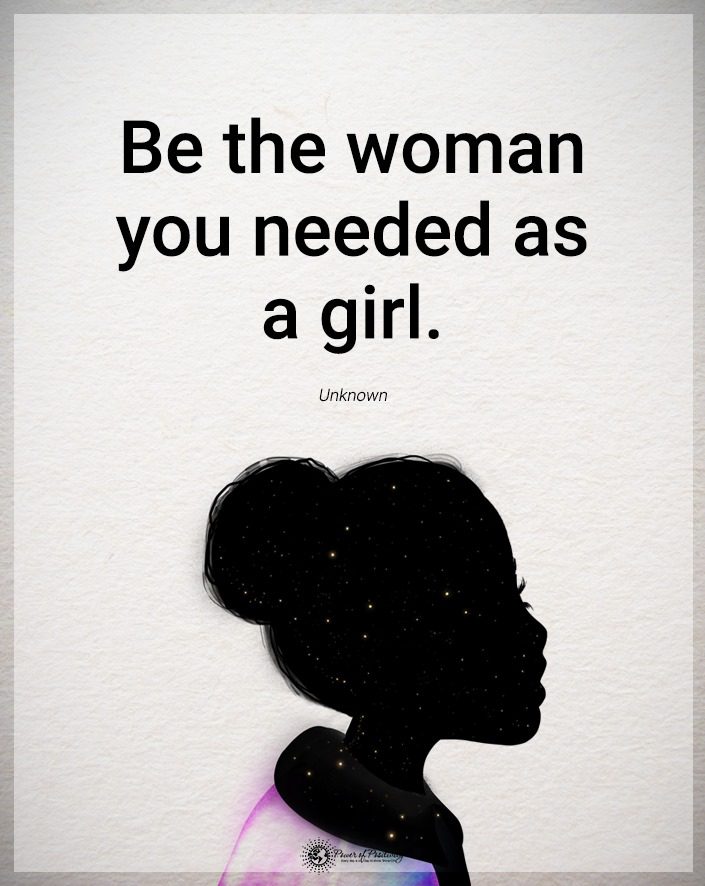Here’s the emotional toll parental neglect takes on women.
The journey from childhood to adulthood is complex and multifaceted, especially for daughters who have grown up feeling unloved or neglected. The psychological impact of this lack of affection and support during formative years can manifest in various ways in adulthood. These women often walk through challenges from unfulfilling relationships to mental health struggles.
This article looks into the psychological aspects of this experience, exploring how it shapes the adult lives of these women.
NOTE: If you are looking for information on what happens to unloved sons as they grow into adulthood, check out our companion article.
The Shadow of Emotional Neglect
Emotional neglect in childhood, particularly for daughters, can cast a long, eerie shadow over their adult lives. When a child does not receive the necessary emotional support from their parents, it often leads to a deep-seated feeling of being unworthy or unlovable. That can result in low self-esteem and a lack of self-confidence carried into adulthood. These women might struggle with self-acceptance, constantly seeking validation and approval from other people to fill the void left by their parents’ neglect.
The consequences of emotional neglect are profound and long-lasting. According to research, children who experience emotional neglect often develop an insecure attachment style, which affects their relationships throughout their lives. They may have difficulty trusting other people, struggle with emotional regulation, and have a heightened fear of rejection. As a result, it can lead to a cycle of unsatisfying relationships and social isolation.
Moreover, emotional neglect can significantly impact mental health.
Studies have shown that children who experience neglect have increased odds of developing mental health disorders as an adult. These may include depression, anxiety, and personality. The lack of emotional support and validation during critical developmental stages can disrupt the normal process of emotional maturation, leaving these individuals vulnerable to psychological distress.
Unloved Daughters Face Frequent Relationship Challenges
One of the most significant impacts of growing up unloved is seen in the realm of personal relationships. These women may find it difficult to form and maintain healthy relationships. They might either cling too tightly for fear of abandonment or keep others at a distance to avoid getting hurt. Trust issues are common, stemming from the mistrust developed in their early relationships with their parents. It can lead to a pattern of unstable or unsatisfying relationships in their adult life.
The negative impact of childhood neglect on adult relationships is a topic of considerable research in psychology. Individuals who experience neglect may struggle with attachment issues.
According to attachment theory, the bond formed between a child and their caregiver lays the foundation for future relationships. When this bond is disrupted or absent due to neglect, it can lead to insecure attachment styles in adulthood. These styles are characterized by anxiety and avoidance, which manifest in the way these individuals approach relationships.
For example, those with an anxious attachment style may exhibit clinginess and a constant need for reassurance driven by the fear of abandonment.
On the other hand, those with an avoidant attachment style might distance themselves emotionally from others as a way to protect themselves from potential hurt. Both styles can create significant challenges in forming deep, stable, and fulfilling relationships.
Furthermore, childhood neglect can impair the development of trust and emotional intimacy. Trust is a fundamental facet of any healthy relationship, and its absence can lead to difficulties in forming close bonds. Individuals who grew up feeling unloved may find it hard to believe that others can love and value them, leading to a cycle of mistrust and relationship breakdowns.
Undeveloped Coping Mechanisms and Poor Mental Health
Unloved daughters often develop various coping mechanisms to cope with emotional turmoil. Some might become overly independent, refusing to rely on anyone else, while others might engage in self-destructive behaviors as a form of self-punishment or escape.
The psychological strain can also lead to mental health issues like anxiety, depression, and, in some cases, post-traumatic stress disorder (PTSD). These mental health challenges are often direct results of unresolved childhood trauma.
The development of coping mechanisms in response to childhood emotional neglect is a complex process. These mechanisms are often subconscious strategies developed to manage the pain and stress of neglect. For instance, becoming overly independent can assert control in a life where they feel powerless as children. This lack of functional coping skills can lead to difficulties in forming interdependent relationships and an inability to ask for or accept help from others.
On the other hand, engaging in self-destructive behaviors is another common coping strategy. These behaviors, which can include substance abuse, self-harm, or disordered eating, are often attempts to manage overwhelming emotions or to exert control over one’s body and environment. Unfortunately, while these behaviors may provide temporary relief, they can lead to further psychological harm and exacerbate mental health issues.
The link between childhood emotional neglect and mental health disorders in adulthood is well-documented. Anxiety and depression are common as these individuals may constantly battle feelings of worthlessness, sadness, and worry. PTSD can also occur, particularly if the neglect was traumatic or if there were other forms of abuse. The unresolved trauma from childhood can trigger PTSD symptoms such as flashbacks, nightmares, and severe anxiety.
Professional Life and Achievements
Interestingly, the impact of this upbringing on unloved daughters is not limited to personal life; it often extends to professional life as well. Women who grew up feeling unloved might overachieve, constantly striving for perfection and success to prove their worth, or they might underachieve, hindered by their low self-esteem and fear of failure. Their career choices and professional attitudes are frequently influenced by their deep-seated need to compensate for the affection and approval they lacked in childhood.
The drive to overachieve can be seen as a compensatory mechanism. These individuals may believe that achieving high success and recognition in their professional lives can fill the emotional void left by childhood. However, this relentless pursuit of perfection and external validation can lead to burnout, chronic stress, and dissatisfaction, as no amount of professional achievement can truly compensate for the emotional needs unmet in childhood.
Conversely, those who underachieve often do so because of a deep-rooted fear of failure and rejection. Having grown up feeling unloved, they might feel incapable or worthy of success. This lack of self-love can result in self-sabotaging behaviors, avoidance of challenges, and settling for less than they can achieve. Their professional lives are thus limited by the low self-esteem and lack of confidence stemming from their childhood experiences.
The influence of childhood emotional neglect on career choices is also significant. These women might choose careers they believe will earn them the approval and recognition they crave rather than following their true passions and interests. Alternatively, they might avoid ambitious career paths altogether out of fear of failure or exposure as a fraud (impostor syndrome).
Unloved Daughters and the Journey Towards Healing
Healing from the scars of being an unloved daughter is a challenging but essential journey. It often involves therapy and counseling, where these women can explore and understand their feelings and experiences in a safe environment. Learning to recognize and break unhealthy patterns, building self-esteem, and developing healthy coping mechanisms are crucial steps in this healing process. These women can overcome their past and lead fulfilling lives with time and effort.
The healing process for those who have experienced childhood emotional neglect typically begins with acknowledging and understanding the impact of their past. Therapy, especially focusing on trauma-informed care, can be instrumental in this process. Therapists can help individuals identify how childhood experiences have shaped their beliefs, behaviors, and relationships. This understanding is a critical first step in the journey towards healing.
Building self-esteem is another vital aspect of the healing process. Many unloved daughters struggle with feelings of worthlessness and inadequacy. Therapy can help them challenge these negative self-beliefs and develop a more compassionate and accepting view of themselves. Replacing negative self-image with self-love means recognizing their strengths, celebrating their achievements, and understanding that their worth is not contingent on external validation.
Developing healthy coping mechanisms is also key. Instead of relying on self-destructive behaviors or avoidance, individuals can learn healthier techniques to manage stress and emotional pain. These include mindfulness practices, journaling, engaging in creative activities, and developing supportive relationships.
The journey towards healing is not linear and can involve setbacks and challenges. However, with persistence and the right support, it is possible to heal from the wounds of emotional neglect. Over time, individuals can learn to form healthier relationships, pursue fulfilling careers, and lead a life that reflects their true worth and potential.
Final Thoughts on the Impact of Neglect on Unloved Daughters
The experience of growing up as an unloved daughter leaves a lasting imprint on a woman’s life. However, it’s important to recognize that while the past cannot be changed, the future is still in their hands. Understanding the psychological impacts and working towards healing and personal growth can lead these women to a life of fulfillment and happiness, breaking the cycle of neglect and embracing their true worth.

















 Community
Community

